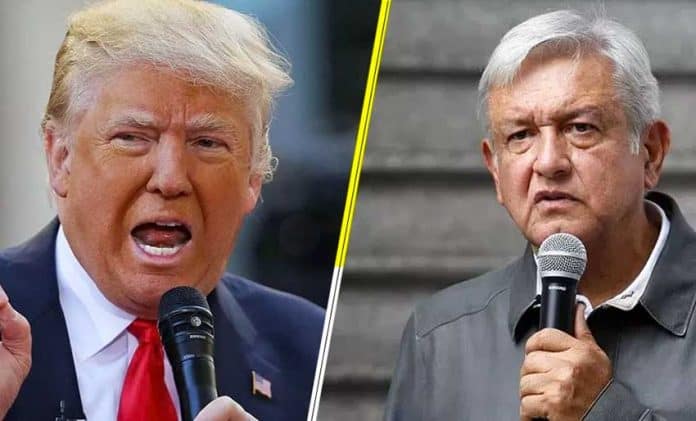President-elect Andrés Manuel López Obrador called for a swift conclusion to the negotiations to reach an updated NAFTA deal in a letter to United States President Donald Trump earlier this month.
“Prolonging the uncertainty could slow investment in the medium and long-term, which clearly would hinder economic growth in Mexico,” López Obrador wrote in the seven-page letter delivered to a United States delegation led by Secretary of State Mike Pompeo during a visit to Mexico City on July 13.
“The strategy of the government I will lead is to seek to create jobs and better living conditions for all Mexicans. At this point, I propose resuming negotiations with the participation of representatives from Mexico, Canada and the United States. Our transition team will participate in coordination with the officials of the current Mexican government.”
López Obrador’s position is consistent with that put forward by Economy Secretary Ildefonso Guajardo last week, who repeated that Mexico will seek to maintain a trilateral trade agreement in North America after Trump once again suggested that the United States could pursue separate trade deals with its two neighbors.
The U.S. president has maintained an often-hostile attitude towards Mexico but Pompeo said during his recent visit to the Mexican capital that “Trump is determined to make the relationship between our peoples better and stronger.”
López Obrador’s letter, which was published yesterday on his website and read aloud by future foreign affairs secretary Marcelo Ebrard at a press conference, said the aim of the new government is to start “a new chapter in the relationship between Mexico and the United States, based on mutual respect.”
Striking a largely conciliatory tone, the missive covered four main issues — trade, migration, development and security — which AMLO, as the political veteran is commonly known, said went to the “essence” of the bilateral relationship.
On migration, López Obrador said “the most essential purpose” of his government will be to ensure that Mexicans are not forced to migrate because of poverty or violence.
“We will strive to ensure that people find work and wellbeing in their places of origin, where their families, their customs, and their cultures are,” the letter said.
Among the measures AMLO proposed so that Mexicans will have greater opportunities at home were greater public investment aimed at the “reactivation of the agricultural, energy, education, culture and health sectors” as well as the “financing of regional development from the south [of the country] to the north.”
He also cited transportation projects and the creation of a free zone in the northern border region as other factors that will help to enable Mexicans to stay in Mexico.
“We will make many changes, Mr. President Trump. And in this new environment of progress with wellbeing, I am sure that we will be able to reach agreements to confront together the migration phenomenon as well as the problem of border insecurity,” López Obrador wrote.
The president-elect’s statements appear to be aimed at placating Trump, who has portrayed Mexico as a poor ally and said in May that “Mexico does nothing for us.”
AMLO also proposed that the migration problem be addressed “in a comprehensive manner through a development plan that includes Central American countries.”
The letter proposed that Mexico, the United States and each Central American nation contribute resources according to the size of its economy and that 75% of the collective funds be allocated to finance projects that create jobs and combat poverty, while the other 25% would go to border control and security.
“At the same time, every government, from Panama to the Rio Grande, would work to make the migration of its citizens economically unnecessary and take care of their borders to avoid the illegal transit of merchandise, weapons and drug trafficking which, we believe, would be the most humane and effective way to guarantee peace, tranquility, and security for our peoples and nations.”
López Obrador conceded that there have been “moments of tension and disagreement” in the bilateral relationship but also said that Mexico and the United States have a unique shared history.
“Many good things bond us. Ties that cannot be broken: culture, language, traditions, and above all, a long friendship and a lot of solidarity.”
López Obrador also said that he was “encouraged by the fact” that both he and Trump “know how to do what we say” and that both had overcome adversity to win their respective nations’ presidencies.
“We managed to put our voters and citizens at the center and displace the political establishment. Everything is ready to start a new stage in our societies’ relationship based on cooperation and prosperity. Let’s do it. I send you a warm hug . . .”
Mexico News Daily
